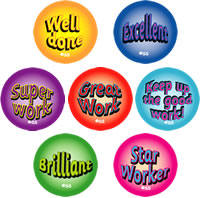I have grown up on a diet of healthy praise. Especially from my father
In many families praise does not come easily to people. Even if something is good, it would be treated in a matter-of-fact manner.
Let me give you an example. My mother was a good cook. On some days her sambhar would simply be out of the world. We kids would praise the sambhar and say “Good”.
However my father would say “Oh, our daughter & son-in-law are coming for lunch is it?”
Whenever my sister and her husband came home, the sambhar was indeed special. Hence this would be the way we would all tease her ‘special’ sambhar on an ordinary day.
My mother would laugh it off but I could make out that she was really pleased.
For a long time I thought that praise was natural in all families, but soon discovered it was not so. For instance in my classmate’s family his father would never praise anything my friend did, even if it was outstanding.
His father belonged to the school which said “Never praise your son to his face, because it will go to his head.”
There is a theory that if we praise a child often, he will get used to the praise and start craving for it. Therefore the child will start doing things just to get that word of praise.
I beg to differ. If our praise is authentic, and well communicated then I do not believe that any child will get ‘addicted’ to praise and crave for it.
Take a look at this situation. My wife and I are on a visit to our daughter’s place. It is a Saturday morning and starts in a nice leisurely way. Her husband is busy fixing something in the garage and I am playing with her two sons (6 & 4). My wife is in the kitchen chatting with our daughter. Our daughter gets a call from her friend to check whether they could drop in that evening; it seems fine. When the visitors arrive in the evening – husband, wife one kid (6 years old), we are all at home. Within minutes our grandsons take the kid to their play room and get busy. I am curious to see what they do so I excuse myself and go to the play room to observe the kids. There is a lot of play, sharing, some fights, but on whole the kids seem to have fun.
After the visitors leave, I ask our grandsons
“So was that fun?”.
They shout a cheerful “Yes” in a chorus.
Then they tell me what happened and how they played etc.
“I wish I was a kid too” I said.
“Why Thatha?”
“So I can have so much fun playing with you.”
Both the kids came gave me a big hug.
When the kids went back to their play our daughter asked me “Did you notice what happened?”
“No. What happened?”
“When you said ‘I wish I was a kid, so I could play with you’, you acknowledged that they are nice kids to play with. But you said it with feeling and they could make out you meant it.”
“How do you know?”
“That is why they gave you a big hug, Appa.”
“OK, but I am not getting the hang of what you want to say.”
“It is just this. Praise is not about words. It is a genuine acknowledgement of someone’s good work. It is a reinforcement of their belief in doing the right things. Kids do a lot of good things instinctively. All we have to do is to let them know that they are doing right.”
“So praise is good?”
“Of course praise is good when it is genuine and authentic. As long as you don’t make it as part of some carrot & sticks formula.”
So to praise or not praise is NOT the question.
The question is “When to praise and how to praise authentically”
Re-published with permission from the blog of ParentEdge, a bi-monthly parenting magazine that aims to expose parents to global trends in learning and partner with them in the intellectual enrichment of their children.
